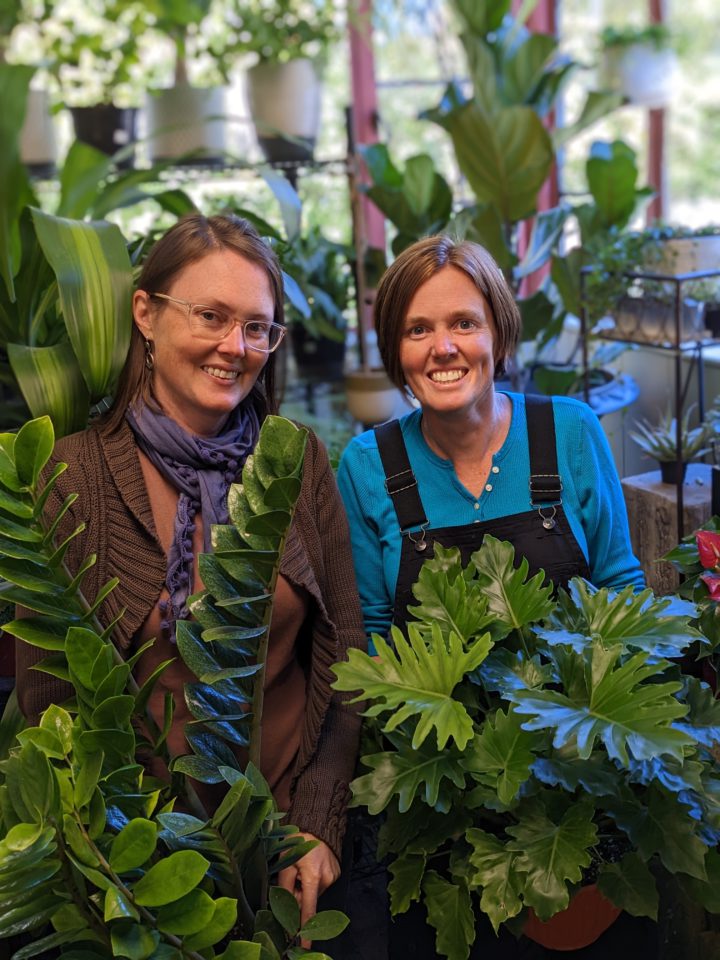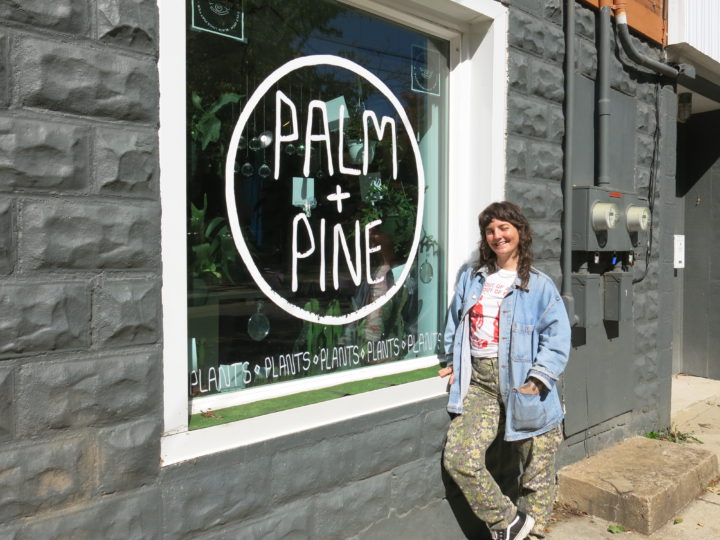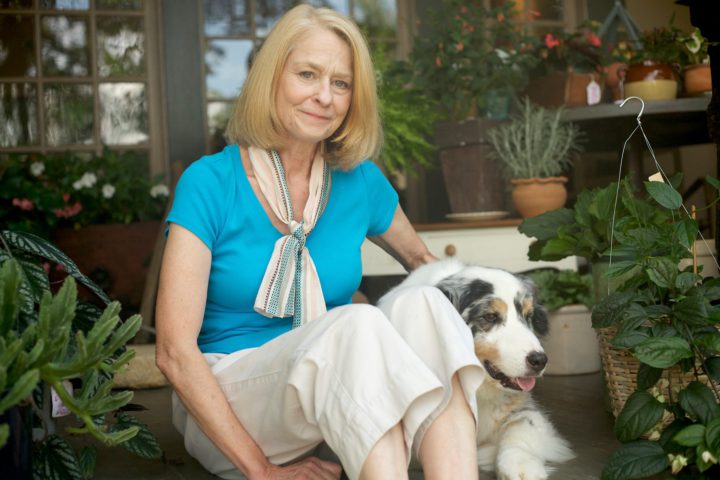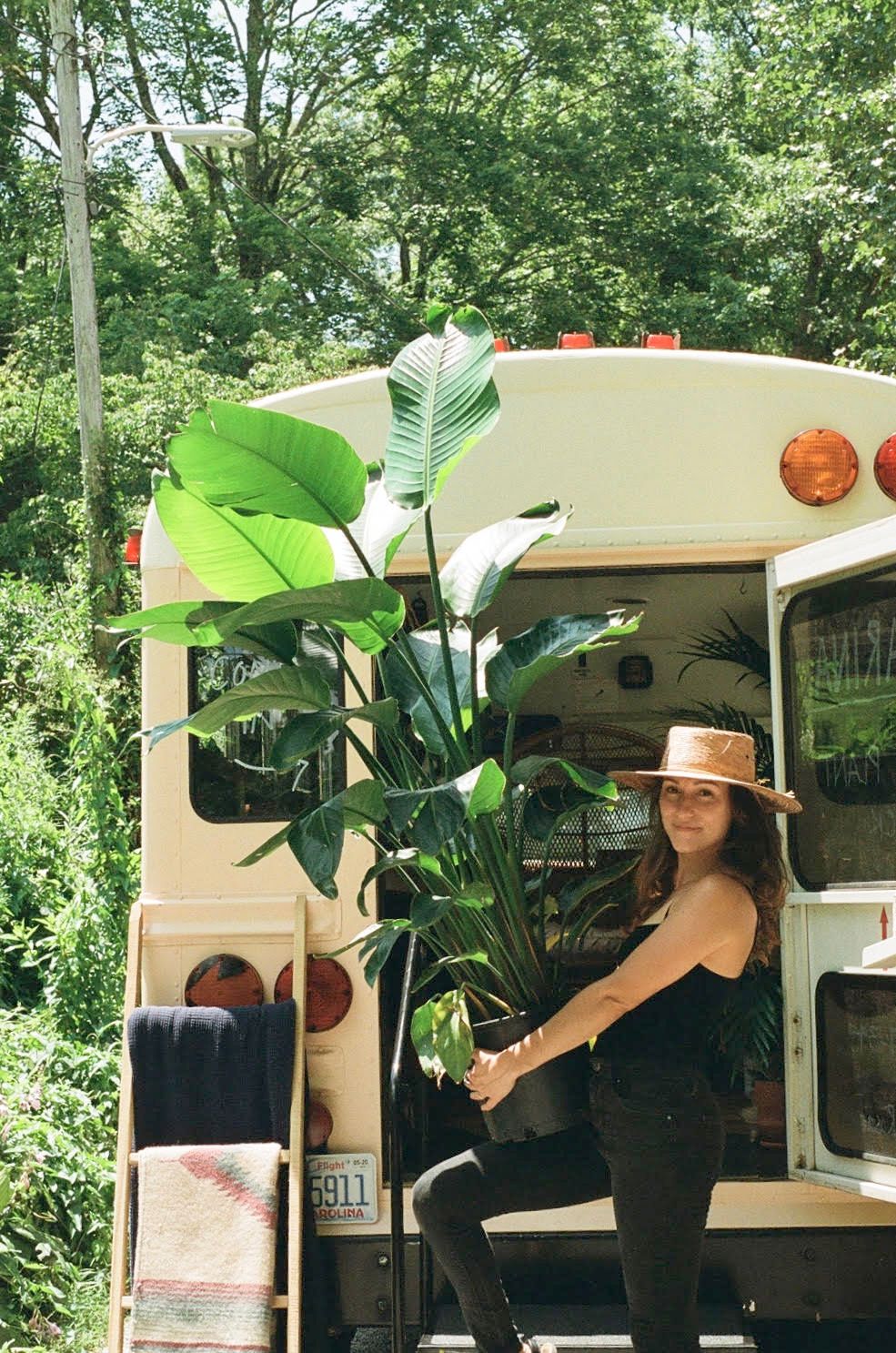Farmers and homesteaders can get their hands dirty all over Western North Carolina. For those with more modest ambitions, there are houseplants.
Garden stores, chain stores and even pharmacies sell houseplants nowadays, but it’s also an attractive industry for many small-business owners. The Asheville area is home to several plant shops known for their intimate size, attention to quality — and being run by women.
When Melissa Thomas started Flora out of her basement 14 years ago, plant shops weren’t as ubiquitous. She opened a brick-and-mortar 12 years ago in West Asheville and has since watched former employees move on to create their own plant businesses.
“There are so many wonderful plant shops in the area that have come about,” Thomas tells Xpress. “It adds a lot to our community and gives people the opportunity to support small, local businesses over the box stores to fill their homes with green space.”
Xpress spoke with several women who own plant shops around Asheville to learn more about sourcing the best greenery and how the pandemic houseplant boom impacted their businesses.
Inspiration is everywhere
Many plant shop owners say opening their own green oasis was a second career after another horticulture-adjacent industry. In April 2021, sisters Laura and Sarah Carter took over their Woodfin shop, Thyme in the Garden, from their parents, who had opened it in 2006 after running a landscape business.
Rose Love Bartlett and her late husband owned a successful garden design business in Washington, D.C., designing for the likes of Sen. Ted Kennedy and Sargent Shriver. After her husband’s death, Bartlett moved to Asheville in 2009 and purchased a historic home on Charlotte Street three years later. The idea of selling plants and antiques had been “percolating” for a while, Bartlett says, but she’d never found the right space in D.C.
In 2013, she opened Rose’s Garden Shop on the ground floor of her home, which had formerly been a hair salon.

“I’m not an office person,” says Erika Mayer, by way of explaining how she came to open Rosarina Plant Shop. Trained as a landscape architect, she grew disillusioned when her job required more time on the computer than in the dirt. She moved from San Francisco to Asheville in 2018 and began transitioning careers. Mayer purchased a decommissioned school bus from the YMCA, painted it peach and opened a mobile plant shop in 2019 to bring plant pop-ups around town.
The owners of Palm + Pine in West Asheville worked at a plant shop together but wanted to curate a different “vibe,” explains Meghan McIver. She and Lindsay Riley met as co-workers at Flora, where McIver brewed drinks in the cafe and Riley crafted floral arrangements. Realizing their complementary creative natures, the friends went into business.
“We wanted to fill in a gap [with] very vibrant, lively, queer space for our community and for our peers,” says McIver, adding that she sees the shop as an art installation as much as a business. She calls Palm + Pine a “beginner plant parent shop,” noting that it carries “a lot of approachable, easy care, set-you-up-for-success plants.”
COVID-19’s business boom
Plant shops are one of the few businesses that didn’t wither on the vine during the COVID-19 pandemic, perhaps due to the desire that lockdowns and other restrictions created for tactile activities at home.
Operating Rosarina Plant Shop out of a bus and traveling to farmers markets helped Mayer thrive during the pandemic. And during 2020, Max Puterbaugh at the South Slope’s Farewell coffee shop suggested she sell houseplants there. A new seed was planted: Now Rosarina stocks houseplants seasonally at several cafes around Asheville, including Citizen Vinyl and All Day Darling.
More teens, 20- and 30-somethings began buying houseplants throughout COVID-19’s disruptions, says Laura Carter, noting her shop’s previous clientele had primarily been retirees. She’s found that the younger generation of plant lovers is unusually knowledgeable about the plants, noting that many use apps like Planta. She jokes that some regard caring for houseplants, such as the particularly showy tropical monstera, “like having a pet, and you’ve got to educate yourself.”

Still, some local green thumbs say the pandemic doesn’t deserve all the credit for the plant boom. Emma Luyckx, owner of Wilderness Botanica in Fletcher, says houseplants benefited from “a hype effect, and [COVID] made being an ‘apartment botanist’ accessible to people who otherwise wouldn’t have the time or energy to dive into it.” However, she continues, “The houseplant ‘phenomena’ was already on the rise and a very established scene well before COVID-19.”
A couple of local shops temporarily closed during the pandemic. Rose’s Garden Shop shuttered completely for two years; Bartlett felt her safety required it, given the shop is on the ground floor of her home. (She reopened on Earth Day 2022.) Palm + Pine held its opening party on Jan. 31, 2020, and then closed for walk-ins six weeks later.
The shop’s owners quickly pivoted: “We put everything online, got an e-commerce situation set up and then we did free deliveries around town,” says McIver. “We had to learn really quickly how to make it work.” (Helpfully, their landlord temporarily decreased the rent while the shop was shuttered.) Palm + Pine reopened in July 2020.
From the source
Most owners say they hand-select as much merchandise as possible, which helps them attend to their particular clientele.
Local plant shops mainly source their greenery from growers in Florida. McIver uses a plant broker in South Carolina who works directly with Florida growers. “I would in the future love to have the opportunity to direct-source from growers,” she says. (A garden in Sandy Mush does supply the shop’s cacti.)
Bartlett sources from a traveling plant wholesaler. “I’ve tried a few services, but you usually have to order bigger quantities and then … they’re not up to my standards,” she explains. “This is a little bit more work, but I get to handpick 90% of the plants that we sell.”

Luyckx has found a niche in exotic plant varieties, like the dark form of Scindapsus terubii, which has almost black leaves. The Carter sisters at Thyme in the Garden, which sits on a large property, say they’re known for their wide array of outdoor pots.
Flora is unlike other area plant shops in that many of its plants are homegrown. “We’re in the process of renovating a 1960s dairy barn on our property, where we also grow flowers, and we have a tropical greenhouse,” says Thomas.
“We’re doing our best to grow as many of our own tropicals as possible,” she adds. “We’re trying to really cut down on the carbon footprint of the tropical plant industry.”
Grown enough
Their merchandise may keep on growing, but the women who run Asheville’s plant shops are largely content to keep their businesses small. Instead of economic expansion, they seem to find more value in something different: loving their jobs.
“In this culture, in terms of capitalism, growth always seems like [the goal] — ‘How much bigger can you get?’” says Mayer. “Actually, I don’t feel like I want to do that.” She says her goal for Rosarina is to be intentional about selling plants in a few locations, “cap it there and enjoy it.”
For other business owners, the rewards are more spiritual. “It’s really interesting to watch the plant world’s emergence into the mainstream, and I’m grateful to be a part of it,” says Thomas. “I’m grateful to see so many people embracing botanical living.”




Before you comment
The comments section is here to provide a platform for civil dialogue on the issues we face together as a local community. Xpress is committed to offering this platform for all voices, but when the tone of the discussion gets nasty or strays off topic, we believe many people choose not to participate. Xpress editors are determined to moderate comments to ensure a constructive interchange is maintained. All comments judged not to be in keeping with the spirit of civil discourse will be removed and repeat violators will be banned. See here for our terms of service. Thank you for being part of this effort to promote respectful discussion.